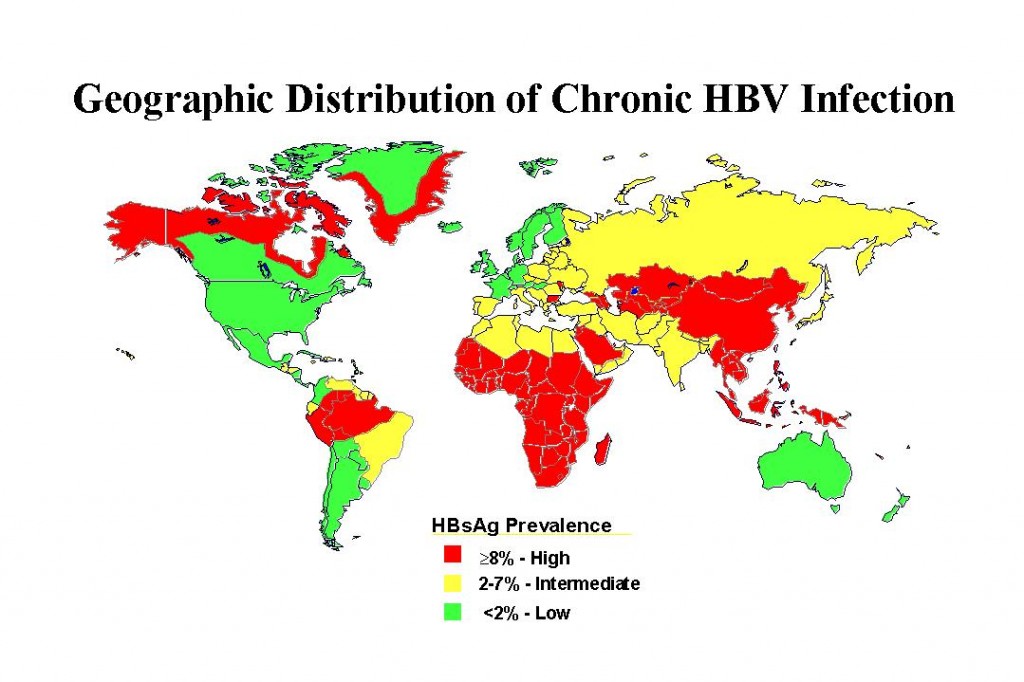As might be expected, HCV is spread in much the same way as HIV and HBV, and while it is about 10 times more infectious than HIV, it is also about 10 times less infectious than HBV. Unfortunately, there is no vaccine currently available to prevent HCV. And, unlike HBV infection which usually goes away on its own, the vast majority of the time, about 85% of all cases, HCV persist in the body, becoming chronic, causing massive long-term damage to the liver, and associated organs, and not infrequently leading to liver cancer. There are treatments available for chronic HCV but these treatments are not necessarily curative although they may slow or even halt for some period of time, on-going damage to the liver. In the most severe cases, liver transplantation may be the only option for survival, but as is also true of HBV infection, the limited number of available organs mean that the majority of people waiting for most any organ will never receive one, or not in time to prevent death, and because a new liver would be immediately infected with either HBV or HCV once surgery was completed, using scarce donor organs in this manner is controversial and often simply not done. As is similar to HBV, HCV is believed to be transmissible through environmental surface contamination since the virus can live on such surfaces for periods ranging from a few minutes up to no more than 4 days. Infection with HBV does not prevent infection with HCV, nor the other way around, and infect, infection with both HBV and HCV, so-called co-infection, is sadly not uncommon in some populations at high risk for such infections. The CDC is a reliable source of information about HCV. Again, and it cannot be overstated, the disinfectants and cleaners that we use to clean blood or body fluid contamination potentially infected with a blood-borne pathogen, HIV, HBV, and/or HCV, be exhaustively tested, certified, and Environmental Protection Agency (EPA) registered as effective against these organisms.
Other Hepatitis Meanings and Viruses
While not considered blood-borne pathogens for the purposes of most discussions, it would be remiss to not note that there are other hepatitis viruses in the world, and to also be clear about the use of the term “hepatitis.” To be clear, the term hepatitis is a medical term that refers to the inflammation of the liver. This inflammation can be caused by one of the several viruses that incorporate “hepatitis” into their names, but it can also be caused by other factors, both infectious and non-infectious. If you, or someone you know or care about, is diagnosed with “hepatitis,” be sure you are clear with your healthcare provider about what is causing the inflammation and about any precautions that may need to be taken both to minimize damage to the liver and to help prevent the spread of the infection to others.

